Juries Choose the Best of Annual Literary Avalanche
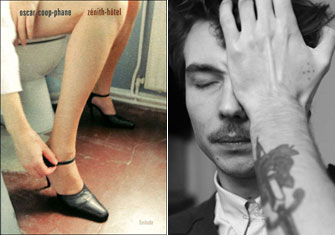
The shortening days mark more than just the return of icy weather and vin chaud to the French capital; they also herald the launch of the country’s long-awaited literary Oscar season, when juries deliver their verdicts and decide which authors will walk away with the various literary prizes – and, if they’re lucky, the prize money.
No other country has quite the equivalent of France’s annual autumn rentrée littéraire, a period that sees the publication of an astoundingly large number of texts, from novels and poems to philosophical tracts and anthropological studies. This year, 646 new novels alone were added to French bookshop shelves – the reason, perhaps, why so many of the writers participate with such zest in the awards season, which they hope will distinguish their text from a populous crowd.
The 2012 winners have been qualified in the French press as unassailable but safe choices. Of the plethora of awards up for grabs, a number stand out, with one towering above the rest: the Prix Goncourt, whose past recipients include Marcel Proust, Simone de Beauvoir and Alphonse de Chateaubriand. Though the winning author receives only a recompense of €10, he or she can expect a boost in sales of about 500,000 copies and even, if things go smoothly, international news coverage. This year, the award was bestowed on Jérôme
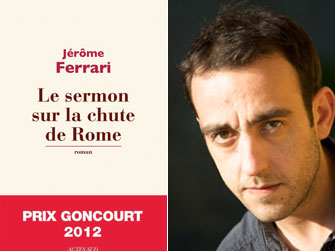
The Prix de Flore is rather more generous, giving its winner, a young author writing in French, not only a check for just over €6,000 but also the right to drink Pouilly-Fumé from a glass engraved with his or her name at the Café Flore every day for one year, a privilege granted this year to 23-year-old Oscar Coop-Phane, a bartender in a trendy cocktail bar, Le Zelda, for his novel Zénith-Hôtel (Finitude), the story of 24 hours in the life of a prostitute and her clients.
The Prix Renaudot, sometimes stigmatized as the “second-best prize” after the Goncourt,
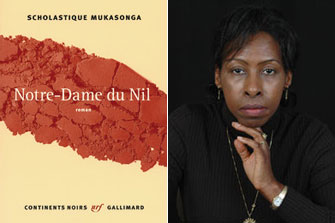
since it was created by 10 art critics awaiting the verdict of the Goncourt jury in 1926, was secured by Rwandan author Scholastique Mukasonga for her book Notre-Dame du Nil (Gallimard), which charts the attempts of a group of young women to escape the 1994 genocide in her country. Although the Renaudot does not reward its winner with even a €10 note, the prize itself is usually enough to shift about 200,000 extra copies of the book.
The Prix Médicis, meanwhile, worth €686 and around 40,000 book sales, went to Emmanuelle Pireyre for her fourth book, Féerie Générale (Editions de L’Olivier) a collection of short stories based on different
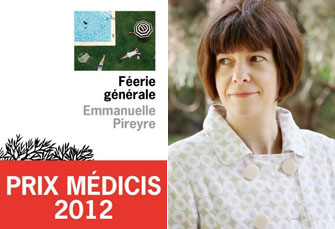
aspects of contemporary society, including the question of the burkha and the demilitarization of Europe.
The bookies were not surprised when Patrick Deville secured the Prix Fémina (no cash prize but over 150,000 book sales) for his novel Peste & Choléra (Seuil), which sheds deserved light on forgotten scientist Alexandre Yersin, nicknamed le vainqueur de la peste by the Vietnamese for his research into the causes and cures of the plague.
Some were surprised, however, when the Académie Francaise bestowed its highest
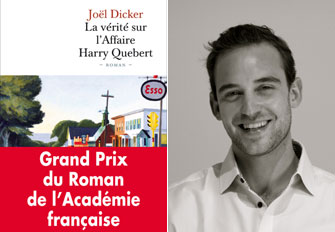
honor, the Grand Prix du Roman (€7,500), on 27-year-old Joël Dicker for his novel La Vérité sur l’Affaire Harry Quebert (Editions de Fallois/L’Âge d’Homme). Set in the United States, it is the story of a successful young author incapacitated by writer’s block who rushes to the aid of a friend and professor accused of the murder of a 15-year-old girl. The same book also won the coveted Goncourt des Lycéens prize, presented to the novel that accumulates the most votes from a group of two thousand schoolchildren.
The Prix Décembre, the country’s most generous award, with a prize of €30,000
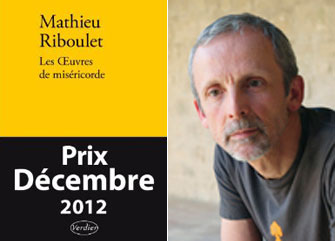
financed by tycoon Pierre Bergé, went to Mathieu Riboulet for his novelLes Œuvres de Miséricorde (Editions Verdier), about a man haunted by the atrocities committed during the 20th century who travels around Germany trying to make sense of it all.
France’s literary rentrée often courts controversy, but the books awarded tend to be of the highest caliber. There can surely be no better way to defy the shortening of the days than to sink into a sofa with a book road-tested and approved by one of these prizes.
Favorite